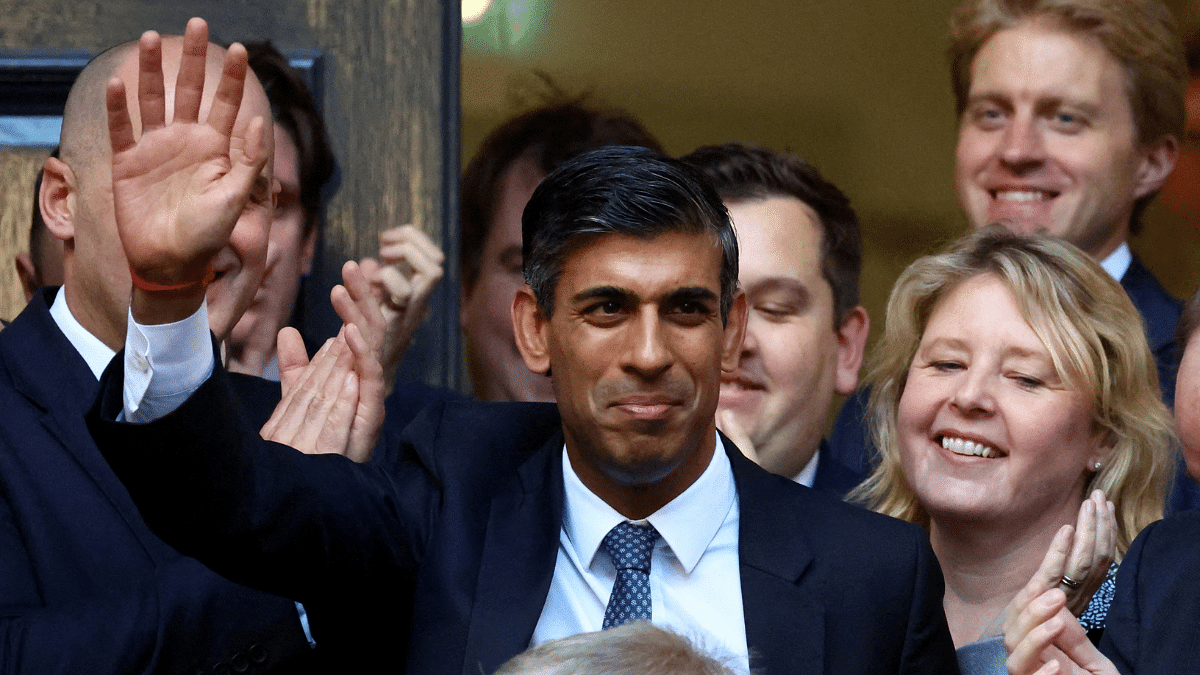
Ever since news broke out that British-Indian politician Rishi Sunak will be the next Prime Minister of the United Kingdom, Left-leaning politicians and intellectuals have been criticising him for his wealth and status. MPs of the Left wing and socialist faction of the Labour Party such as Zara Sultana and Nadia Whittome have taken the lead in putting out criticism that the Sunak family owns two times more wealth than King Charles III and would do nothing for the working class since he does not understand their everyday life struggles. Instead of celebrating the elevation of the first brown politician to the top job, the Left ecosystem in the UK is focusing on his riches. However, the Leader of Opposition, Keir Starmer, the only big left Leader, has congratulated him “on becoming Prime Minister and making history as the first British Asian PM”.
The vilification of leaders from ethnic minorities in Right-wing parties is not just a UK phenomenon. We saw how the elevation of Indian President Droupadi Murmu and former President Ram Nath Kovind was mocked by the same ideological ecosystem. This raises the question of why, instead of debating the possible benefits of the elevation of ethnic minorities to top offices, Left-wing leaders and intellectuals mock them.
Inability to understand the benefits
The elevation of leaders from ethnic minorities and women to top offices brings a gradual change in the life of these communities. Such leaders bring in diverse and distinct experiences as well as value to the public institution, which alters the functioning of the system. Left-wing intellectuals and leaders have failed to understand this logic. Instead, they evaluate such leaders with the yardstick of how actively they are changing the lives of the communities they belong to. They have also failed to understand the importance of the change in attitude and behaviour of common masses that arises as a result of such elevation. It breaks the traditional notions of racial, class, and sexual superiority — white, male, ‘upper’ class — in high public offices.
Also read: India, Pakistan share pride as Sunak becomes first British PM of Asian heritage
Class can’t trump identity
Left-wing leaders have long held that class politics is more important for them than identity politics. However, issues of discrimination, humiliation, and ethnic violence are much more linked with identity rather than class. Therefore, the Left has seen a systematic decline across the world since they failed to understand this. In the UK, Indian voters were once strong supporters of the Labour Party, but the ascendancy of the Left-wing Jeremy Corbyn has deserted a substantive number of those voters. Mocking Sunak will further such a danger.
The Left’s overdetermination
The Left-wing ecosystem has long operated on the theoretical framework of seeing leadership as a vanguard and the masses as having false consciousness. Such an ideological lens denies the idea of individual agency in celebrating success. Sunak has presented his story in a way that shows how he rose with his hard work, talent, and labour. Criticising him just for having an enormous amount of wealth doesn’t seem to work. It might further alienate the voters who believe in achieving things from the ground up.
Also read: New chapter in India-UK ties as Rishi Sunak becomes first Indian-origin British PM
Success of Right-wing parties
Unlike the Labour Party, the Conservative Party has heavily invested in cultivating leadership from ethnic minorities. Sunak became MP only in 2015 from the Richmond (Yorks) constituency, which is considered to be one of the safest for the Conservative Party. The credit for cultivating such leadership for changing the outlook of the party goes to former Prime Minister David Cameron. He predicted in 2012 that very soon his party would give its first British-Indian prime minister. And that has turned out to be true within 10 years. Not only in Britain but elsewhere too, such as in Italy and Germany, Right-wing parties have taken the lead in promoting women leaders and those from other social groups. Left-wing parties have been lagging behind. Even if they promote such leaders, they try to do so from the constituencies where ethnic minorities are in majority. That is why we hardly see such leaders at the highest echelon of Left-wing parties.
Left-wing leaders and intellectuals have to quickly adjust their opinion based on the changing attitude of the people. Instead of denigrating leaders from ethnic minorities, they should start investing in cultivating authentic leadership from such communities. To do so, they might be required to readjust their theoretical principles because such leaders would bring their own norms, values, and experience that would require reshaping their public sphere. Mere criticism and denigration of leaders are not going to work, and nor will a ‘yes-man’ type of leadership.
Arvind Kumar (@arvind_kumar__), PhD in Politics, Royal Holloway, University of London, and Associate Fellow of Higher Education Academy (AFHEA), United Kingdom. Views are personal.
(Edited by Humra Laeeq)
Source: The Print

